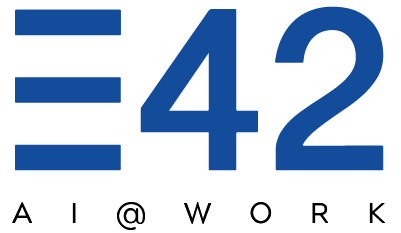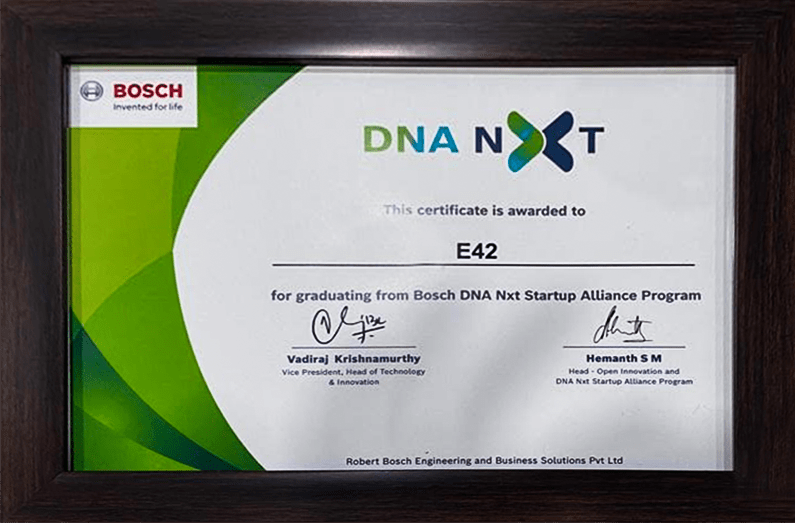Talent is scarce, and companies increasingly realize that retention doesn’t just hinge on competitive salaries or high-profile projects—it often comes down to the small, everyday interactions that shape an employee’s experience. HR departments know this well. They go above and beyond, but often, it’s the finer points that make the most lasting impression. The impact of AI on employee engagement has become valuable in addressing these nuanced but impactful aspects of engagement, creating solutions for the small, often-overlooked issues that can define an employee’s perception of the workplace.
Take the seemingly simple issue of timely feedback. In a fast-paced work environment, feedback can easily be delayed or missed, leaving employees in the dark about their performance and growth. AI-driven feedback tools help address this by prompting managers to provide insights right after a milestone or project completion. These small, regular nudges give employees clarity, allowing them to celebrate their wins and course-correct where needed without the wait. Receiving feedback in a timely manner isn’t just a performance boost—it’s a signal to employees that their contributions are seen and valued.
Another subtle but common issue is the administrative friction employees face with day-to-day HR processes, like tracking down policies, updating personal information, or clarifying benefits. Imagine an employee trying to update their home address or understand a specific benefit within the company’s healthcare package. Instead of navigating a labyrinth of forms, links, and wait times, an AI-powered assistant can provide instant answers and help with these updates, streamlining interactions that would otherwise consume both employee and HR time.
The Shifting Dynamics of Employee Engagement with AI
Traditional conversational tools for employee engagement efforts have relied on surveys, periodic reviews, and occasional team-building activities. While helpful, these methods lack real-time insights and individualized responses. AI has fundamentally shifted this dynamic by enabling continuous engagement, drawing on real-time data, and adapting to each employee’s unique needs and work patterns. It’s similar to moving from still photographs to live-streaming employee sentiment and interaction.
For instance, AI-powered sentiment analysis tools can analyze text from emails, chat messages, and feedback forms, offering HR leaders insights into employees’ emotional states and engagement levels. By tracking this data longitudinally, HR can proactively address issues before they escalate, whether that means assisting a struggling employee or celebrating a team’s achievements. This shift to real-time responsiveness turns employee engagement from a reactive measure into a proactive one.
Personalization at Scale: How AI Knows Each Team
One of the most remarkable impacts of AI on employee engagement is its ability to personalize interactions on a scale previously unimaginable. While a manager might not be able to check in with every team member daily, an AI-powered assistant can send personalized messages, reminders, and nudges that encourage employees to complete tasks, attend events, or engage with resources. In essence, AI acts as an invisible team coach, guiding individuals in a manner that feels tailored to them.
Consider an AI system that prompts employees with personalized development resources based on their career goals or recent projects. It’s as though each employee has a personal mentor, accessible anytime, who nudges them toward growth opportunities. This hyper-personalization, achievable through technologies like Large Language Models (LLMs), fosters a deeper connection between employees and the organization, making each person feel valued and supported.
Avoiding the Pitfalls of Hallucinations and Bias in AI

Yet, there is a cautionary tale here. AI systems, particularly generative models, have a tendency for “hallucinations”—generating responses that seem plausible but are factually incorrect. Imagine an AI assistant that confidently answers an employee’s policy question with misinformation. This can erode trust in both the technology and the HR team.
To mitigate these impacts of AI on employee engagement, rigorous data verification and ongoing model refinement are essential. Organizations deploying AI for engagement should implement a feedback loop where AI-generated responses are periodically reviewed for accuracy, especially in HR-related queries where precise information is critical. Additionally, establishing guardrails—such as setting thresholds for confidence scores or triggering human intervention for ambiguous responses—helps ensure that AI serves as a reliable, trusted advisor rather than a potential source of confusion.
Maintaining Data Integrity in Employee Engagement with AI
Data integrity is another critical factor in AI-driven engagement. With so much personal and behavioral data flowing through these systems, safeguarding privacy is paramount. When employees interact with AI-powered chatbots, sentiment analysis tools, or personalized dashboards, they expect their information to be secure and used responsibly. HR leaders and data scientists must ensure that data handling complies with regulations, minimizes bias, and protects employee confidentiality.
AI models are only as effective as the data they are trained on, which means data integrity directly impacts employee engagement outcomes. Training models with accurate, representative data ensures that insights are applicable across the entire organization. Additionally, robust data governance practices, such as anonymizing data and regularly auditing model outputs, create a foundation of trust essential for meaningful engagement.
Impact of AI on Employee Engagement: Building a Culture of Continuous Feedback
The impact of AI on employee engagement is multifaceted, AI doesn’t just track engagement; it also supports a culture of continuous feedback. Traditional performance reviews are often retrospective and limited in scope, capturing only a fraction of an employee’s contributions. In contrast, AI can gather feedback continuously through tools that evaluate interactions, project outcomes, and employee sentiment in real time. This continuous feedback cycle provides employees with ongoing insights into their performance, encouraging growth and adaptation.
For example, an AI-driven tool can prompt managers to provide feedback after key milestones, ensuring that employees receive timely recognition for their efforts. By fostering a feedback-rich environment, AI helps employees feel more connected to their work and valued by their organization, driving deeper engagement over time.
The Omnichannel Approach to Employee Engagement
Today’s workforce is spread across multiple digital platforms—email, messaging apps, social media, and proprietary systems. AI can unify these channels, offering omnichannel engagement solutions that allow employees to connect with HR resources wherever they are. Imagine an AI assistant that integrates seamlessly with platforms like Microsoft Teams, Slack, or even WhatsApp, making engagement accessible at every touchpoint.
This omnichannel approach breaks down silos and ensures that engagement isn’t limited to one platform. Instead, it becomes part of the everyday employee experience. An AI-powered omnichannel assistant might offer guidance on an employee’s questions about benefits, respond to feedback from a recent survey, or nudge them about an upcoming company event. This level of integration brings fluidity to engagement, creating a cohesive experience across channels.
Future-Proofing Employee Engagement with AI

As AI advances, so will its impact on employee engagement. The AI for HR operations of tomorrow will be even more intuitive, contextually aware, and capable of understanding complex human emotions. Imagine AI systems that can detect signs of burnout, isolation, or disengagement through subtle patterns in behavior, allowing HR teams to intervene early. Such proactive engagement will be a powerful tool in preventing turnover and creating an inclusive workplace culture.
However, future-proofing employee support with automation also means addressing its limitations today. Continuous learning models, real-time data integration, and ethical considerations around privacy must be at the forefront of AI development. Companies that prioritize transparency, accuracy, and inclusivity in their AI systems will set a standard for meaningful engagement that resonates across the organization.
Bringing Sam, The AI HR Operations Executive Built on E42 into the Engagement Ecosystem
At the heart of this evolving landscape is Sam, an AI HR Operations Executive, built on E42 designed to automate HR processes and enhance employee engagement at scale. Deployed across omnichannel platforms and equipped with conversational AI, Sam is built to meet employees where they are, providing real-time responses to questions and simplifying complex transactions. By utilizing enterprise-tailored LLMs and Intelligent Document Processing (IDP), Sam ensures accuracy in every interaction, making it an invaluable partner for HR teams aiming to streamline operations without sacrificing quality or engagement.
With integration capabilities across platforms like Microsoft Teams, Slack, and SAP, Sam offers seamless support, enhancing productivity by allowing employees to resolve their queries in real-time. Sam doesn’t just automate processes; it contributes to a 90% increase in employee engagement, fostering a responsive, agile, and empathetic workplace. In a world where meaningful engagement can be a competitive edge, Sam exemplifies how AI can go beyond automation to become a catalyst for lasting connections between employees and their organization.
Transform your HR operations with Sam today—talk to us!



